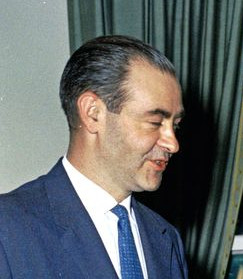 W
WRoberto Alemann was an Argentine lawyer, economist, publisher, and academic.
 W
WÁlvaro Carlos Alsogaray was an Argentine politician and economist. He was Minister of Economy and was the principal proponent of classical liberalism in Argentina.
 W
WAmado Boudou is an Argentine economist and politician who served as the Vice President of Argentina from 2011 to 2015. He previously served as Minister of Economy from 2009 to 2011.
 W
WAntonio Francisco Cafiero was an Argentine Justicialist Party politician. Cafiero held a number of important posts throughout his career, including, most notably, the governorship of Buenos Aires Province from 1987 to 1991, the Cabinet Chief's Office under interim president Eduardo Camaño from 2001 to 2002, and a seat in the Senate of the Nation from 1993 to 2005.
 W
WJorge Milton Capitanich is an Argentine politician, businessman, and accountant who is currently Governor of Chaco Province since 2019, having held the position before from 2007 to 2013 and then from February to December 2015. A member of the Justicialist Party, he previously served as Chief of the Cabinet of Ministers from 2013 until 2015, serving under President Cristina Fernández de Kirchner, as intendente (mayor) of Chaco's capital city, Resistencia, and as National Senator, representing Chaco as well. Since 2007 he has also been president of the Sarmiento Athletic Club.
 W
WLuis Andrés Caputo is an Argentine economist who was Minister of Public Finances and President of the Central Bank of Argentina.
 W
WSalvador María del Carril was a prominent Argentine jurist and policy-maker, as well as his country's first Vice President.
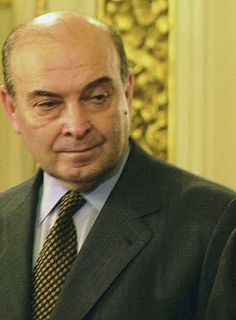 W
WDomingo Felipe Cavallo is an Argentine economist and politician. Between 1991 and 1996 he was Economic Ministry of Argentina during Carlos Menem presidency. He is known for implementing the Convertibility plan, which established a currency board with the dollar and allowed the dollar to be used for legal contracts. This brought the inflation rate down from over 1,300% in 1990 to less than 20% in 1992 and nearly to zero during the rest of the 1990s. He implemented pro-market reforms which included privatizations of state enterprises. Productivity per hour worked during his 5-years as minister of Menem increased by more than 100%.
 W
WEnrique Perez Colman was a lawyer, journalist, writer, professor and Argentine politician, who served as Minister of the Treasury between 1928 and 1930, during the second presidency of Hipólito Yrigoyen.
 W
WLuis Lorenzo Domínguez (1819–1898) was an Argentine politician, poet, historian, journalist and diplomat. In addition, he was the Minister for Economic Affairs for Argentina and served as an ambassador for Argentina to the United States and the United Kingdom and Spain.
 W
WNicolás Dujovne is an Argentine economist and former Minister of the Treasury between 2017 and 2019 under the administration of Mauricio Macri.
 W
WAntonio Erman González was an Argentinian politician. He occupied many charges during the presidency of Carlos Menem, like Minister of Economy, Minister of Health, Minister of Defense, Minister of Labour and President of Central Bank of Argentina. He also was National Deputy for Buenos Aires district and Ambassador of Argentina in Italy.
 W
WCarlos Rafael Fernández is an Argentine economist and was, from April 2008 to July 2009, the Minister of the Economy of the country.
 W
WRoque Benjamín Fernández is an Argentine economist, former President of the Central Bank and Minister of Economy, and the only member of the Chicago Boys ever to have been the chief economic policy maker in Argentina.
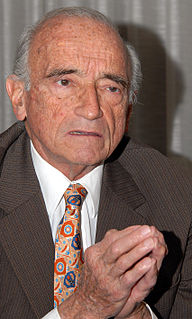 W
WAldo Ferrer was an Argentine economist. He was one of the leading proponents of economic nationalism in Argentina.
 W
WRodolfo Aníbal Frigeri was an Argentine economist and politician. He served as the Minister of Economy and Public Finances from December 23, 2001, to December 30, 2001, during the brief administration of President Adolfo Rodríguez Saá under the title "Minister of the Treasury, Finance and Public Revenue."
José Ber Gelbard, was a Polish-born Argentine activist and politician, and a member of the Argentine Communist Party. He also helped organize the Confederación General Económica (CGE), made up of small and medium-sized business. Beginning about 1954, he was appointed as an economic advisor to Juan Perón and repeatedly was called back to serve as Minister of Finance to successive governments until the military coup of March 1976. He fled with his family shortly before the coup, gaining political asylum in the United States and settling in Washington, D.C.
 W
WBernardo Grinspun (1925-1996) was the minister of economy of Raúl Alfonsín. He was appointed in 1983, and resigned in 1985.
 W
WMartín Maximiliano Guzmán is an Argentine economist, currently serving as Minister of Economy in the cabinet of President Alberto Fernández.
 W
WAxel Kicillof is an Argentine Peronist economist and politician who has been Governor of Buenos Aires since 2019.
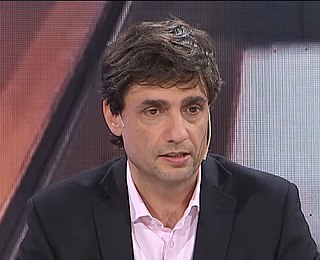 W
WJorge Roberto Hernán Lacunza is an Argentine economist, appointed in 2019 as Minister of the Treasury of the Mauricio Macri administration.
 W
WRoberto Lavagna is an Argentine economist and politician who was Minister of Economy and Production from April 27, 2002 until November 28, 2005.
 W
WCayetano Antonio Licciardo was an Argentine politician and the Minister of Economy of Argentine from 1971 to October 13, 1972, and the Minister of Education December 22, 1981 to December 1983.
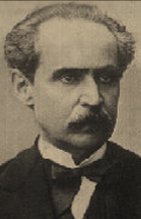 W
WVicente Fidel López was an Argentine historian, lawyer and politician. He was a son of writer and politician Vicente López y Planes.
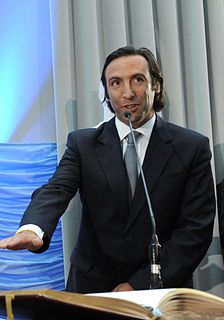 W
WHernán Gaspar Lorenzino is an Argentine lawyer and public policy maker. He was appointed Minister of Economy of Argentina by President Cristina Kirchner in 2011.
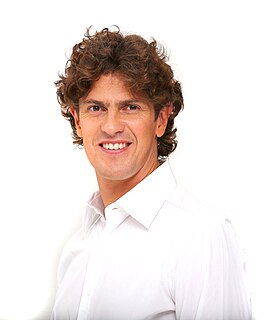 W
WMartín Lousteau is an Argentine economist and politician of the Radical Civic Union. He is National Senator for Buenos Aires.
 W
WJosé Luis Machinea is an Argentine economist and United Nations official. He was Minister of Economy and President of the Central Bank.
 W
WJosé Alfredo Martínez de Hoz was an Argentine lawyer, businessman and economist. He was Minister of Economy under Jorge Rafael Videla's administration between 1976 and 1981, and shaped economic policy at the National Reorganization Process.
 W
WFelisa Miceli is an Argentine economist, and a former Minister of Economy and Production of Argentina. She was appointed by President Néstor Kirchner on January 28, 2005, in place of Roberto Lavagna, and was the first woman ever to lead that ministry. She resigned to the position on July 16, 2007, as prosecutors stepped up an investigation into a bag of cash found in her ministry offices.
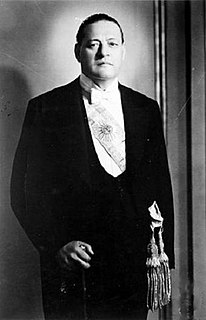 W
WJaime Gerardo Roberto Marcelino María Ortiz Lizardi was the 19th President of Argentina from February 20, 1938 to June 27, 1942.
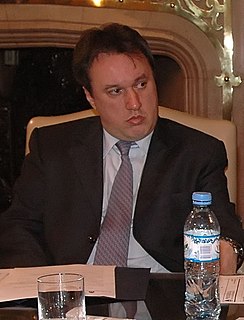 W
WMiguel Gustavo Peirano is an Argentine economist and former Minister of Economy and Production of Argentina. He was appointed by President Néstor Kirchner on July 17, 2007, in place of Felisa Miceli.
 W
WNorberto Piñero (1858–1938) was a prominent Argentine lawyer, writer and conservative politician.
 W
WVictorino de la Plaza y Palacios was, the President of Argentina from 9 August 1914 to 11 October 1916.
 W
WAlfonso Prat-Gay is an Argentine economist and politician. Following the election of Mauricio Macri to the presidency on 2015, he became Minister of Economy.
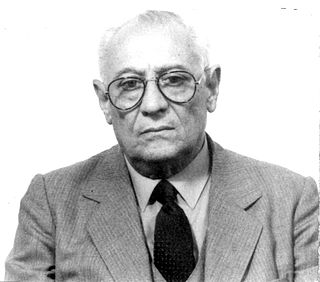 W
WJuan Carlos Pugliese (1915–1994) was an Argentine politician. He served as minister of interior and minister of economy during the presidency of Raúl Alfonsín.
 W
WNéstor Mario Rapanelli was an Argentine economist, businessman, and politician. He served as Minister of Economy in 1989. He was born and died in Buenos Aires.
 W
WJorge Remes Lenicov is an Argentine economist and politician who served as Minister of Economy and Production from January 3 till April 27, 2002.
 W
WMiguel Ángel Roig was an Argentine economist.
 W
WLorenzo Juan Sigaut is an Argentine economist.
 W
WJuan Vital Sourrouille was an Argentine economist. He is the author of El Complejo Automotor en Argentina.
 W
WJosé Antonio Terry was an Argentine lawyer and politician, who served as Minister Plenipotentiary of the Argentine Republic.
 W
WFrancisco Uriburu was an Argentine businessman and politician, member of the Argentine Chamber of Deputies for Salta province from 1872 to 1876. He was Minister of the Treasury in 1890.
 W
WAdalbert Krieger Vasena was an Argentine economist who served twice as Minister of Economy of the country, first between 1957 and 1958, during the military dictatorship of Pedro Aramburu, and later between 1966 and 1969 during the military dictatorship of Juan Carlos Ongania. Adalbert Krieger Vasena was the grandson of Pedro Vasena, an Italian blacksmith and entrepreneur immigrated in Argentina in the second half of the 19th century. In the first decade of the 20th century, the Vasena family was the head of the largest steel company in Argentina.
 W
WDalmacio Vélez Sarsfield was an Argentine lawyer and politician who wrote the Civil Code of Argentina of 1869, which remained in force until 2015, when it was replaced by the new Código Civil y Comercial de la Nación.